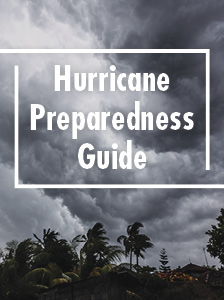Unfortunately, life insurance scams happen every day. Being a victim can be a costly and life-changing event. The FBI estimates the total cost of non-health insurance fraud at more than $40 billion per year. (Read about car insurance scams here.)
“Anyone can be a victim of fraud,” said Tim Boyle, AAA Northeast’s senior manager of life insurance. To avoid falling victim to life insurance fraud, Boyle urges anyone in the process of taking out a life insurance policy, updating an existing policy, or those who have been contacted about an existing or new policy, to educate themselves thoroughly.
Protect Yourself. Be an Educated Consumer.
Before signing any documents or disclosing personal information it is important to understand how the policy works.
“Do your research, meet your life insurance agent in person and make sure that you are dealing with a reputable company,” said Boyle. “A life insurance agent must be licensed by the state that they are working in. Each agent has a National Producer Number or NPN, that shows them to be in good standing. To verify that the agent you are working with has an NPN, contact your state insurance agency.”
Boyle reported that AAA members are welcome to arrange a complimentary life insurance review with a licensed AAA life insurance agent at a regional branch office. “It’s an important member benefit,” he said.
For many people, thinking about life insurance falls into the same category as writing a will. It’s not something that most of us want to think about. But, “life insurance doesn’t need to be scary,” Boyle said. “It’s all about educating yourself. It’s an important financial decision that needs to be taken seriously. Know what you’re getting into.” Being aware of whom and what you are dealing with is a key factor to avoid becoming a victim of a life insurance scam.
How Not to Be a Victim of Life Insurance Scams
So what are the different types of life insurance scams and why are these frauds so prevalent?
Criminals engaging in life insurance scams often focus on vulnerable people. Their targets are often the elderly, young people who are starting out their careers or with young families, as well as those who have recently lost a loved one. In some instances, criminals research obituaries to find the names of survivors.
The most common scams, Boyle said, begin with a phone call, email or text. The victim may be told that a life insurance policy they own has money due. Or they may be told that they are the beneficiary of a policy that has lapsed, payments are due and once they pay the late charges, they will be entitled to a large amount of money. This is always a red flag. To make matters worse, in some cases, the criminal engaging in the scam will also say that the victim needs to give them their social security number for verification and bank account number for an electronic deposit.
“If you are contacted unexpectedly about a life insurance policy, be very careful,” says Boyle. “If it sounds too good to be true, it most likely is.” Before clicking on a link, answering questions by phone or email, and before providing any sensitive personal information, call the company directly.

If you are contacted about a policy following the death of a loved one, and told that you are the beneficiary, do not disclose any personal or financial information. Locate any paperwork and contact your state insurance agency. A reputable life insurance company such as AAA would never call, text or email an individual to ask for this kind of information.
Another tactic that criminals use in life insurance scams is to convince the victim to pay them directly. Never make a payment to a post office box, by gift card, wire transfer or cash. And make sure that the life insurance company that the agent is claiming to represent is real. Once again, research and validate.
Fee churning, Boyle advised, is another way of parting you from your money in a life insurance scam. Fee churning is when an agent pressures a client into taking out more life insurance than they need because the agent will make a commission on the sale.
“At AAA, our life insurance specialists are all licensed agents who are paid a salary. They don’t earn fees. Protect yourself by asking if fees are charged,” Boyle said.
Consumers should also be aware of annuity life insurance offers, Boyle advised. “Scammers prey on victims by convincing them to take out a policy that is not in their best interest in order to make a fee on the sale,” he said.
Support For Life Insurance Scam Victims
If you have been a victim of a life insurance fraud, contact your state insurance agency.
Connecticut – Phone: 860-297-3800; Web.
Massachusetts – Phone: 617-521-7794; Web
New Hampshire – Hotline: 800-852-3416; Phone: 603-271-2261; Web
New Jersey – Hotline: 800-446-7467; Phone: 609-292-7272; Web
New York – Hotline: 888-372-8369; Web
Rhode Island – Phone: 401-462-9520; Web
Licensed AAA life insurance agents are available to support AAA members in branch offices. Learn more.

















